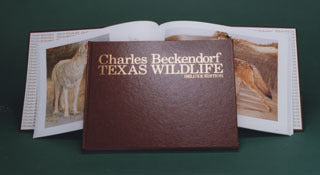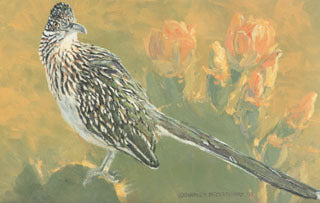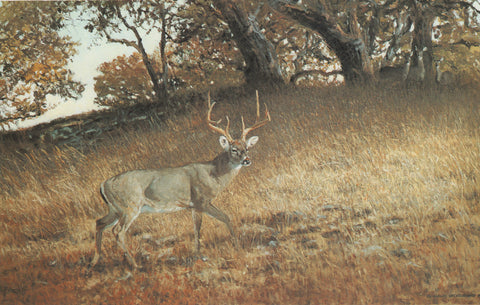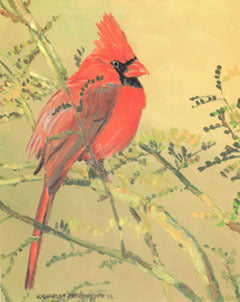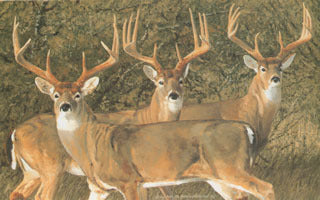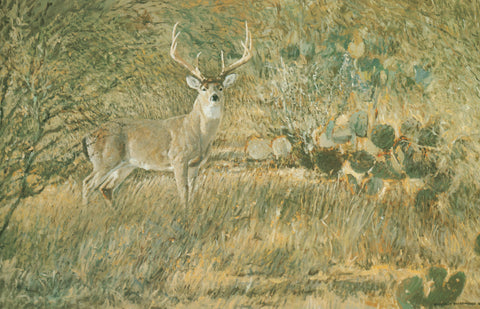
H-16 South Texas Buck
Color Reproduction | By Charles Beckendorf
Additional Information
The white-tailed deer became a major source of food and clothing for the average white settler of the early 1800's. Venison and buckskin sustained many pioneers in their first years before they cleared the land, planted crops and stocked domestic animals. Many used deer hides as a medium of exchange, and many professional hunters killed deer for their hides alone.
This slaughter by the commercial meat and hide hunters, and the destruction or alteration of habitat by settlement, almost caused the extermination of the whitetail by the end of the 1880's.
By the 1920's, the Texas deer herd was at an all-time low. By the 1930's, most of our present game laws were enacted, and restocking and management programs were underway.
Today Texas has over three million white-tail deer - more than any other state or province in North America.
This image is from the Charles Beckendorf Texas Wildlife book. The original was an acrylic painting on canvas (1992) and the size is approximately 14 X 11 inches. The total edition size of this print is 500.
This is a part of the Texas Wildlife Art Prints Collection.
Color Reproduction
This slaughter by the commercial meat and hide hunters, and the destruction or alteration of habitat by settlement, almost caused the extermination of the whitetail by the end of the 1880's.
By the 1920's, the Texas deer herd was at an all-time low. By the 1930's, most of our present game laws were enacted, and restocking and management programs were underway.
Today Texas has over three million white-tail deer - more than any other state or province in North America.
This image is from the Charles Beckendorf Texas Wildlife book. The original was an acrylic painting on canvas (1992) and the size is approximately 14 X 11 inches. The total edition size of this print is 500.
This is a part of the Texas Wildlife Art Prints Collection.
Beckendorf color reproductions are developed using four color process printing on fine white paper. This advanced technique utilizes separate color plates for each of the primary colors, plus black. High-resolution digital scans and special process inks are utilized to yield beautiful, accurate reproductions.
About the Artist - Charles Beckendorf
Charles grew up in Mathis, Texas, where he had the opportunity to spend hours on large ranches. Generous land owners gave him permission to wander freely over their ranches and he observed creatures in their natural surroundings. He developed a lifelong love of nature, whether it be in the tiniest of flowers or the largest of animals. It was at this time that he became a true naturalist.
We Also Recommend
REVIEWS

